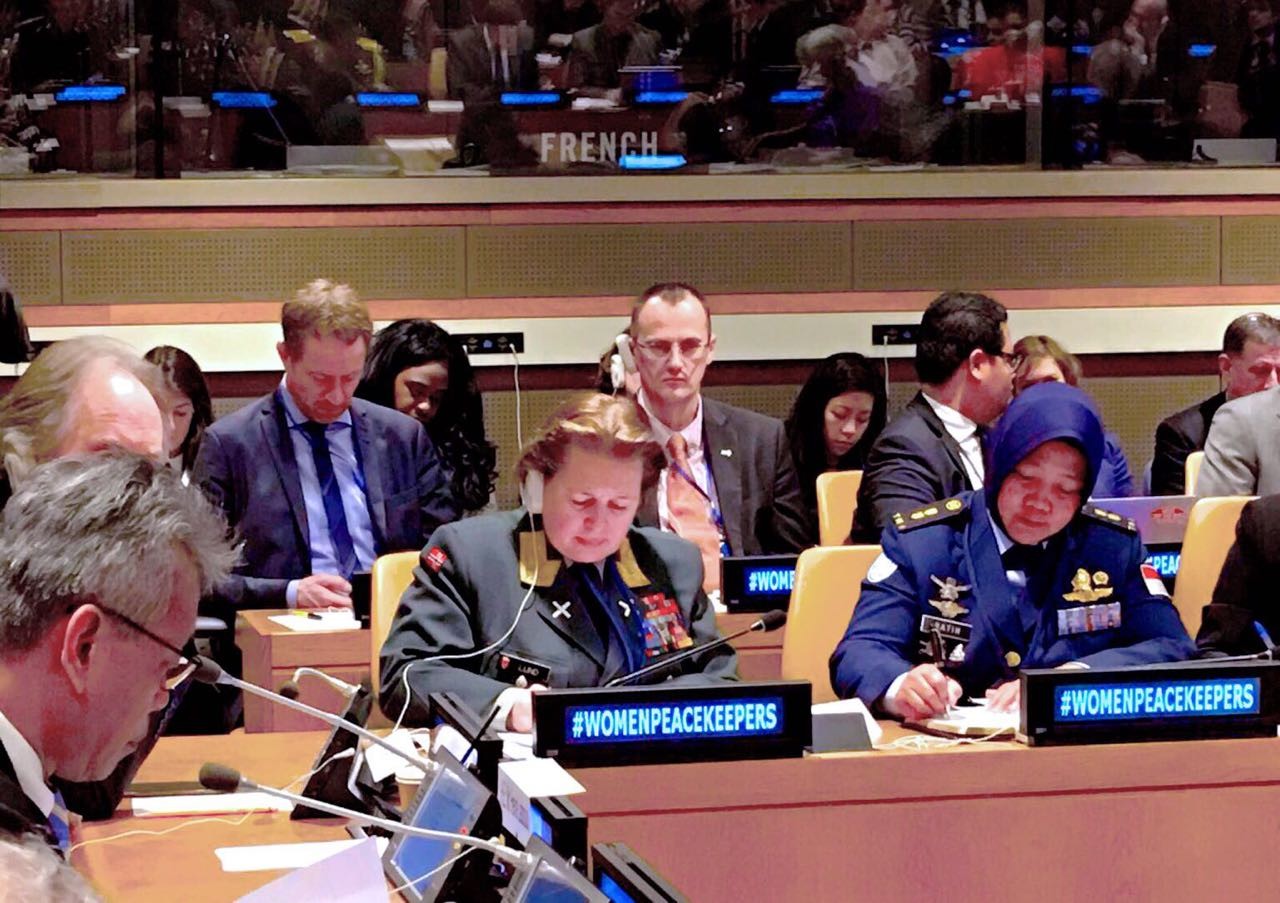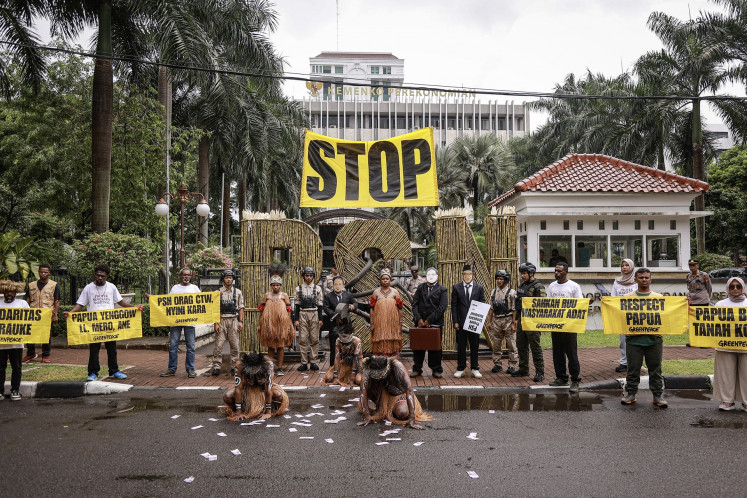Popular Reads
Top Results
Can't find what you're looking for?
View all search resultsPopular Reads
Top Results
Can't find what you're looking for?
View all search resultsCreating global network of female peacekeepers
Change text size
Gift Premium Articles
to Anyone
T
he issue of women in peace processes is very dear to me. Not only because I am a female diplomat, but most importantly because of the many inspiring concrete examples of women as agents of peace, agents of tolerance and agents of prosperity.
Research has shown that women’s participation in peace negotiations can increase the likelihood of sustained peace by 20 percent. Unfortunately for us, women’s participation in peace processes is still an exception rather than the norm.
Indonesia has put a lot of effort into enhancing the role of women in political and decision-making processes. In the House of Representatives, more and more women are becoming legislators, and a quarter of our Cabinet are women ministers, who hold strategic portfolios
As a non-permanent member of the United Nations Security Council, Indonesia has always emphasized women’s participation in peace processes. One concrete effort to address this challenge is Indonesia’s initiative in the convening of the Regional Training on Women Peace and Security for young female diplomats of the region this week. This training is aimed at empowering the capacity of female diplomats as peace negotiators and mediators.
Most importantly, the training is expected to generate and nurture a pool of capable female peace negotiators and mediators in the region toward the creation of Southeast Asian women mediators and peacekeepers. This regional network can work hand-in-hand with similar networks from other regions to establish a global coalition of women for peace and security.
On my part, I am striving to push for Indonesia’s active role in numerous security issues.
In support of the Palestinian cause, I have recently inaugurated training for women entrepreneurs in refugee camps to empower women to achieve sustainable development goals.
In Afghanistan, Indonesia continues to meaningfully promote peace and wellbeing by among other things organizing numerous capacity building efforts for Afghan women.
On the issue of Rakhine state in Myanmar, Indonesia has been working with ASEAN to support a sustainable and comprehensive solution, including the involvement of the ASEAN Coordinating Center for Humanitarian Assistance on Disaster Management (AHA Center) in the conduct of needs assessment to assist the repatriation process of the displaced persons in a voluntary, safe, secure and dignified manner.
Globally, volumes of cases have proven that the role of women in peace processes and conflict resolution is undeniable and crucial.
While there have been notable successes, reports from UN Women show that during peace processes recorded between 1990 to 2017, women made up only 2 percent, 5 percent and 8 percent of mediators, witnesses and negotiators, respectively. Moreover, UN data shows that only 5.5 percent of UN peacekeepers are female.
This situation is unacceptable and should be rectified immediately.
How can this be achieved? I propose a two-level approach.
At the regional level, there is a need to further promote the agenda of women, peace and security.
In Southeast Asia, ASEAN leaders adopted a joint statement in 2017 on promoting women, peace and security in ASEAN that encourages the integration of gender perspectives in all conflict-prevention initiatives and building the capacity of women as peacebuilders.
Furthermore, we should continue to strengthen the relevant ASEAN bodies, in particular, the ASEAN Institute for Peace and Reconciliation (AIPR), which seeks to promote gender mainstreaming in peace-building, peace-processes and conflict resolution, consonant with the aims of AIPR’s aims and purposes to create a pool of experts.
At the global level, women as agents of peace are most visible in their role in peacekeeping operations.
Female peacekeepers possess better situational awareness, can provide comfortable protection of civilians from sexual and gender-based violence, and are more easily acceptable in winning the hearts and minds of the local community.
As such, Indonesia continues to encourage and prepare more of its able female peacekeepers by including the issue of gender in UN peacekeeping as part of the regular curriculum at the Indonesian Peacekeeping Training Center.
But we also need to redouble our efforts on several fronts.
First, there must be a concerted effort to raise awareness of the vital role of female peacekeepers. Second, we need to increase cooperation and collaboration among troop-contributing countries that send female peacekeepers. Third, we may consider the establishment of a global coalition of women for peace and tolerance that consists of female peacekeepers, women negotiators and mediators.
Investing in women equals investing in peace. I now call on everyone to work together on our common goal of securing peace and stability.
***
The writer is Indonesian foreign minister. The article is based on her speech at the opening of the Regional Training on Women Peace and Security in Jakarta on April 8.











